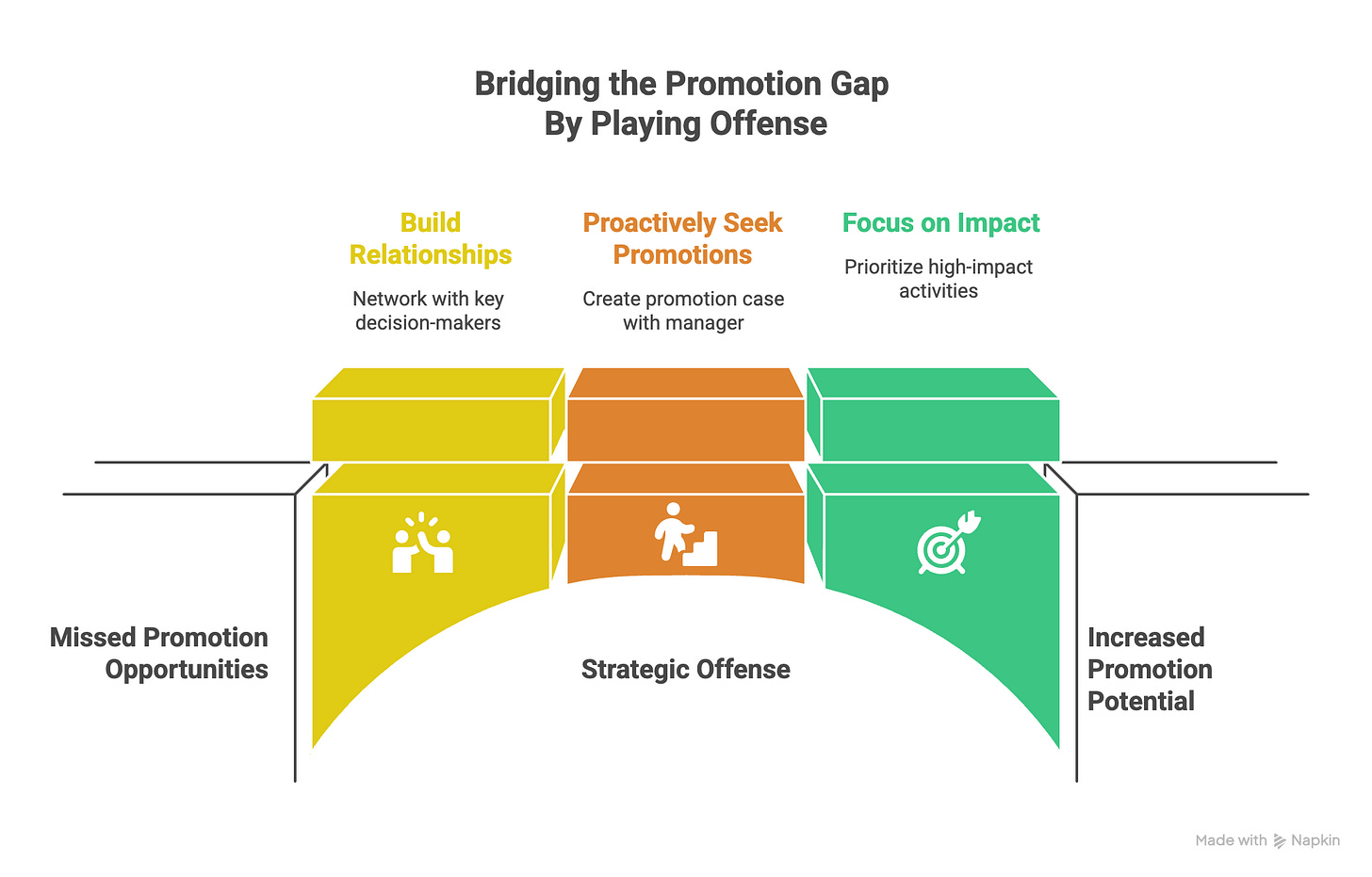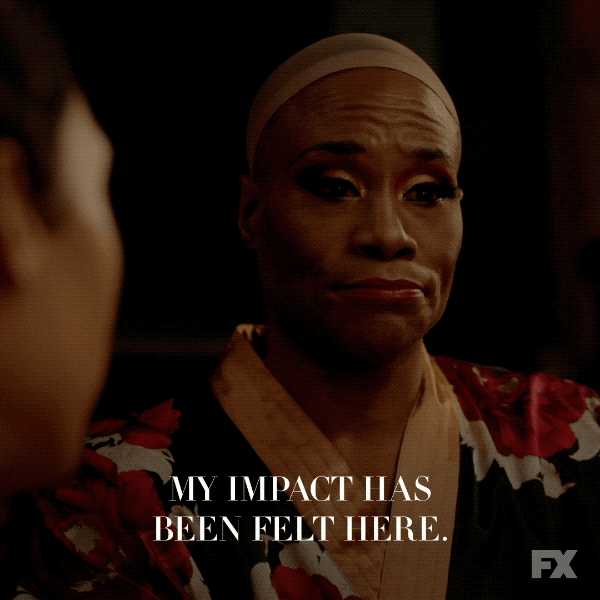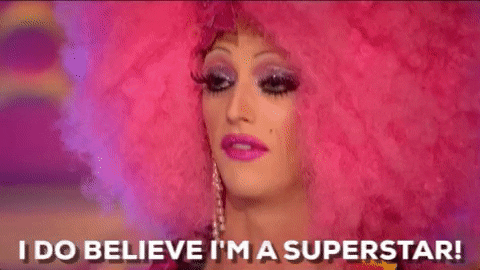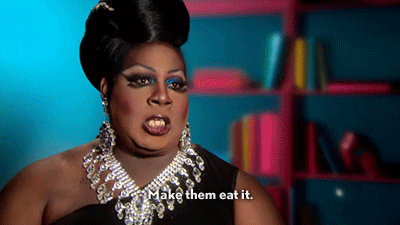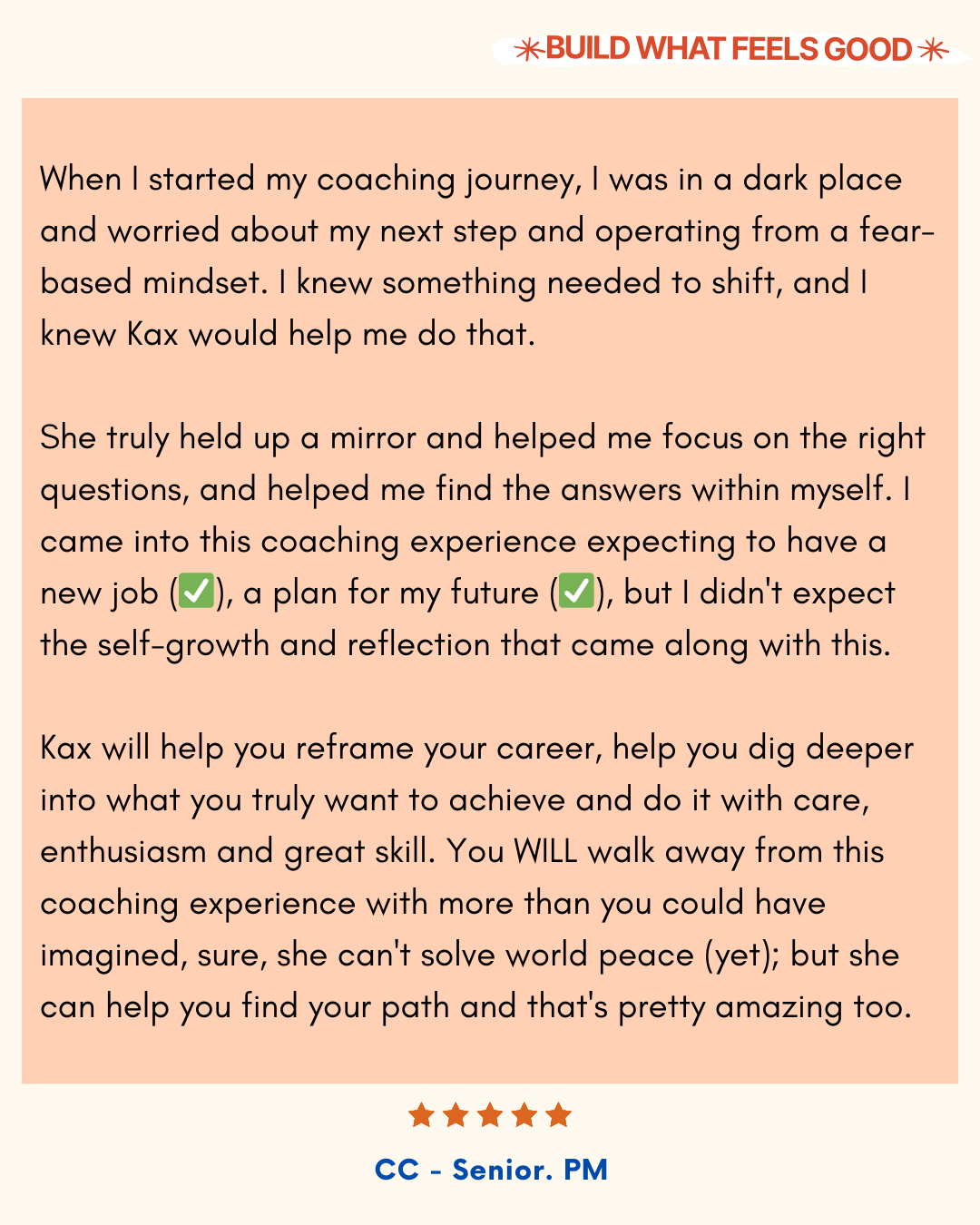#74: Playing Defense vs Playing Offense
Promotions are a game and here's the mindset that changes how you can play it
September means one thing in corporate tech: year-end development conversation prep season is about to begin. For most people, regardless of the level they may be in, these conversations can be stressful at best, harrowing at worst.
If you're already feeling a knot in your stomach thinking about these conversations, then this post is for you.
After coaching dozens of PMs through promotion cycles, and having been through them myself, I've learned that promotion processes are a game and it’s a game you can’t win unless you start playing offense.
The Defense Player's Reality
I know this cycle intimately because I lived it.
Once upon a time, when I was a young and innocent Product Manager, I worked my ass off, delivered measurable impact, only to find out my peers were leveled higher than I was. But I still waited until “proper” development conversations to bring up promotion, only to hear reasons why I wasn't ready yet that felt completely invalid. It didn't help that my managers kept changing so every conversation started from scratch.
Then I lost out on a leadership position simply because I wasn't communicating that I wanted it, while someone else was crystal clear about their goals.
This is what playing defense looks like: waiting for things to happen TO you, assuming your work will speak for itself, and hoping someone else will advocate for your advancement.
And this defense mindset is even more pronounced for women and women of color who have been taught since forever to keep our heads down, do our jobs well, and don't make trouble. And asking for promotions can feel EXACTLY like making trouble.Doing the job well doesn't necessarily equate to being ready for the next level. It just means you know how to work at your current level well.
And when managers say "not ready yet," what they usually mean is “we haven't been having ongoing conversations about your development all year, I don't have a clear picture of your impact beyond task completion, you haven't shown me what you'd do differently at the next level, and I don't feel confident betting on your future potential because I only see your present execution”.
Playing defense is exhausting.
There's this persistent feeling of invisibility, like you're working twice as hard but somehow, you're missing out in the important conversations and decisions.
You end up burned out, not from the work itself, but from the constant low-level anxiety of wondering if anyone notices what you're doing.
Why The System Rewards Offense Players (And What Defense Players Miss)
So why does the system reward players who play offense?
It comes down to three key things defense players miss:
When you're head down deep in the work, you miss out on the opportunity to create the perception of being ready. You miss out on opportunities to build relationships with people whose opinions matter about whether or not you're strategic, and people who can advocate for you when your manager cannot.
When you don't ask for promotions, you miss out on the opportunity to build a case AND an action plan to make this real with your manager. Getting your manager in on the game early helps you prioritize what you actually need to work on and make a plan to make this happen. Their support is necessary.
Impact is always going to be the key. If you're stuck in meetings or staying up late answering every Slack message, you miss out on the opportunities to create real impact or try and share the learnings from what you've created (which is what the company truly needs).
The promotion system isn't actually about rewarding hard work because if it were, the hardest-working people would always get promoted, and we all know that's not how it works. *side-eye to … the world*
Promotions are bets on future potential (you can read it straight from the horse’s mouths here in a previous issue). And the people making decisions (your managers and promotion committees) don't bet on defense players because the risk is too high. Instead, they bet on people who demonstrate self-leadership.
How offense players practice self-leadership:
They align expectations early and often on what "awesome" looks like
They manage up about progress toward goals, not just project updates
They give themselves permission to do more of what's important vs what's being asked from them even if it means pushing back
They can navigate uncertainty calmly and can turn chaos into a fun little adventure
They’re not afraid to be visible for both the good things and the bad things
The system rewards offense players because they demonstrate the exact behavior that senior roles require: taking ownership, driving alignment, and creating opportunities rather than waiting for them.
But what is self-leadership, really?
It's trusting yourself enough to make decisions based on your values and goals rather than just reacting to whatever gets thrown at you. It's knowing your strengths and leaning into them instead of constantly trying to fix your weaknesses. And it's being grounded enough in who you are that you can navigate conflict, pressure, and uncertainty without losing yourself in the process.
☎️ When you lead yourself first, opportunities start finding you instead of you chasing them. If you're ready to flip that switch and build unshakeable confidence in your career path, let's discuss how that can look for you specifically.
Book a discovery call with me and let's talk about how coaching might be able to help you with your career.How To Flip From Defense to Offense (Starting Today)
If you're reading this and thinking "fuuuuuuuuck, I've been playing defense all year!"… Don't panic because you have plenty of time to shift this if you start now.
⚡ Quick wins: In your 1:1s, start doing these
Talk about progress toward goals, not just projects
Share your next steps and challenges before they become problems
Reinforce who you already are while addressing the gaps
Have a plan for how you're filling in the gaps (don't just acknowledge them)
Ask yourself whether you're giving yourself space to do more of what you is important or are you constantly just fighting fires day in and day out
⛑️ The promotion conversation you actually need to have:
Most people approach promotion conversations asking for it instead of making a case. This is how you get a million variations of “you’re not ready” as a response.
Don't walk into your next 1:1 and say "I want a promotion".
Walk in and say "Based on the impact I've been having, I believe I'm ready for the next level, and here are the 10 million reasons why."
🧰 The conversation should sound like this:
"Over the past year, I've been operating at the next level in these ways... [specific examples]. The impact has been [concrete outcomes]. I've been thinking about my next step, and I'd love to discuss what a promotion to [specific role] would look like and how we can make that happen this cycle."Notice what's different? You're not asking IF you can be promoted. You're discussing HOW it can happen based on evidence you've already established.
Even if this specific promotion doesn't happen this cycle, having this conversation builds the muscle of advocating for yourself and gets you clearer data about what advancement looks like at your company. Both of which serve you long-term.
💡 When You Don't Know Your Impact (And How To Figure It Out Fast)
But this is what trips most people up: they don't actually know how to talk about their impact in terms that matter for promotions. They may not know or have been focused on execution. Whatever the reason is, the more senior you become, the more impact becomes the language of the game.
Start with what the business actually cares about:
Value: Did you solve real problems that users actually cared about? Did your work directly contribute to making money or saving money?
Efficiency: Did you eliminate waste, reduce time-to-market, or streamline processes?
Team performance: Did your work enable others to be more effective?
If you don't have hard numbers, look for these signs:
Before/after scenarios: "Before we implemented X, the team spent 3 hours a week on manual processes. Now it's automated."
Stakeholder feedback: "Our customer support team reports 40% fewer tickets related to this feature."
Process improvements: "We reduced our deployment time from 2 weeks to 3 days."
When you genuinely don't have data, create a plan to get it:
Tell your manager. For example:
🧰 "I realize I don't have strong metrics on my impact yet, and I want to fix that. Can we align on what success metrics would look like for my current work so I can track them going forward?"This actually demonstrates exactly the kind of self-leadership that gets people promoted: recognizing a gap and taking ownership of solving it rather than waiting for someone else to tell you what to measure.
🧰 Your September Action Plan
This coming week:
Audit your work from the past 6 months using the impact framework above
Draft your promotion case: "I've been operating at the next level by... with impact of..."
Book a personal development conversation with your manager (separate from your regular 1:1)
This month:
Have the promotion conversation using your impact case as the foundation
Ask: "Based on this impact, what else would need to be true for promotion this cycle?"
Start tracking metrics for the current work so you have data going forward
This quarter:
Build one new relationship with someone who can advocate for your promotion case
Document new impact as it happens (don't wait until next review cycle)
Share the impact and learnings widely and often
What Happens When You Don't Get Promoted (And Why That's Not Actually The Point)
But sometimes it's not even about you. I have a client right now who's doing everything right. She’s performing at the next level, has her manager's support, had the promotion conversation early in the year; but getting blocked by systemic barriers that have nothing to do with her readiness.
She's been at the company less than a year, promotion calibrations happen mid-year so she has to wait months, and committee members think promoting someone so "new" feels too early and they’ve been pushing back on making her an exceptional case.
There's nothing objective about this, which is the nature of promotions themselves
A lot of what happens in promotion decisions is outside our control: the process itself, the fact that managers aren't the only ones making decisions, budget constraints, or roles that just don't exist (especially the more senior you become).
The ultimate value of playing offense isn't actually getting the promotion: it's that YOU start to know your own value.
You learn to speak about your contributions with confidence, and you stop tying your worth to what other people think.
💡 Not getting promoted doesn't make you less valuable, and when you're grounded in your own value through self-leadership, rejection becomes information rather than devastation.
Playing offense becomes about finding a fit for yourself:a role, scope, and recognition that match what you bring to the table.
Promotions are opportunities. And playing offense asks you to know what that promotion actually means: Is the additional scope what you want, or do you want it because it makes you feel important?
TL;DR
The promotion system feels rigged because it rewards self-leadership in a world that trains us to seek external validation. You can't think about your promotion in one day, or even one month, it's about being honest with yourself about how you're spending your time, having allies who can speak for you, and trusting yourself enough that the promotion becomes acknowledgment rather than validation.
Stop waiting for development conversations to happen TO you. Start leading yourself first, and let that self-leadership drive how you show up in every conversation.
📌 Coaching Bulletin Board:
Ready to stop playing defense and start building your offense playbook? If you're ready to flip the script and start leading yourself through your career development, I'd love to help you build that strategy.
📣 I have 1:1 coaching slots open for:
Senior functional experts in tech who want to stop waiting for recognition and start creating their own opportunities before year-end conversations begin.
New Product, Dev, or UX leaders navigating the challenges and complexity (or even drama) of personal development conversations and promotion processes.
Senior folks in tech who are feeling stuck in their careers but not sure what they want for “what’s next” much less where to start.
Book a discovery call with me and let’s have a chat about how partnering on a coaching collaboration can be a fit for your goals.
If you got to this part of this newsletter, thanks for staying with me until the end. And thank you for sharing with me topics that you’d like for me to share my thoughts, feelings, and violent reactions on.
💙
Kax



